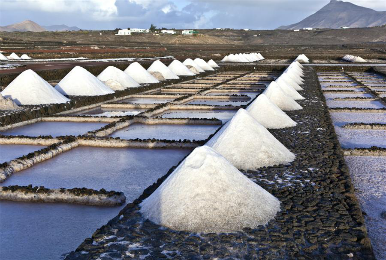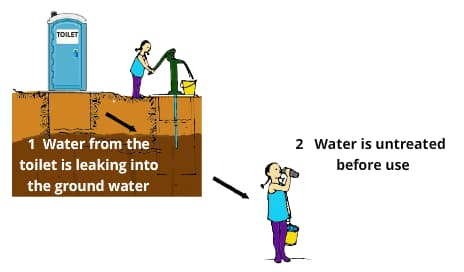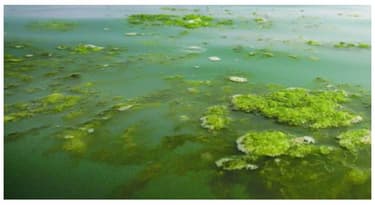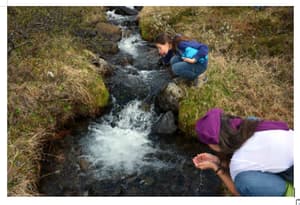Water Pollution
Water Pollution: Overview
This topic covers concepts such as Water Pollutants, Water Pollution, Causes of Water Pollution, Prevention of Water Pollution, and Effects of Water Pollution.
Important Questions on Water Pollution
According to the World Health Organisation, the maximum level of fluoride in water should be _____.
The World Health Organisation recommends limiting arsenic concentrations in water _____.
Write two methods of stopping water pollution.
Fill in the blank using the words given in the box:
| Diarrhoea cleans dirty Kali Bein urbanisation |
The water gets _____ after domestic use.

Seawater contains many natural salts. Do these salts pollute the sea?
Which of the following is a point source of water pollution?

Peter is camping with his family near a stream in a wooded area. During his stay in the camp he throws all the plastic waste into the stream. What is wrong with this?

Take a careful look at this picture. The girl experiences abdominal pain with diarrhea. What do you think she is suffering from?
Which of the following is a natural cause of water pollution?
Which of these substances when mixed with water moderate quantities can cause pollution?
Mira thinks it is a good idea to throw used coconut oil down her kitchen drain as it will not pollute the water. Is she right in thinking so?
Which of the following is a natural cause of water pollution and can spread waterborne diseases through drinking water?
Does groundwater pollution affect all kinds of living things?
Which of the following is the possible cause of algal bloom in water bodies?
State true or false.
Water pollution has both immediate as well as long-term effects.
A few people on a trek suffered from symptoms of vomiting and nausea after drinking untreated water from a stream. What might be the cause for such an illness?
Where does the water carrying dirt and pollutants, along with this storm water or rainwater that flows on our public roads, ultimately flow into?



